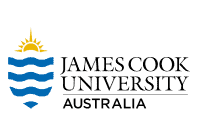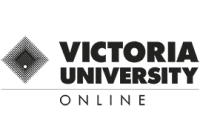Are you considering pursuing an MBA in Australia but feeling overwhelmed with the numerous specialisations to choose from? Well, you're not alone. With so many options available, it can be challenging to pick the best MBA specialisation that suits your career aspirations and interests. But worry not, as we've got you covered!
In this article, we'll guide you through the process of selecting the best MBA specialisation for you in Australia. We'll explore different MBA specialisations, their job prospects, and the skills and knowledge you can acquire through them. You'll gain insights from industry experts and successful MBA graduates, making this a valuable resource for your decision-making process.
So, whether you're interested in finance, marketing, or entrepreneurship, this article will help you make an informed decision and set you on the path to success. So, let's dive in and explore the best MBA specialisations in Australia that align with your career goals and aspirations.
Quick Links To Online MBA Degree Programs
Southern Cross University
Master of Business Administration (MBA) Online
- 2 years, Part-time
- 8-16 units
- $2,990 per unit, FEE-HELP available
James Cook University
Master of Business Administration Global (MBA Online)
- 24 months, Part-time
- 12 subjects (One subject per each 7-week study period)
- $3,700 per subject, FEE-HELP is available
Victoria University
Master of Business Administration (Online)
- 2 years Part-time (minimum)
- 12 units (7 weeks)
- $3,650 per unit, FEE-HELP available
University Of New South Wales
MBAX (Finance)
- 2-6 years part-time
- Fee: AUD$5,190
- Commencing Terms
Term 1 – February
Term 2 – June
Term 3 – September
Why Choosing the Right MBA Specialisation Is Important?
Getting the proper specialisation for your MBA is essential because it can have an effect on your future wages as well as your employment opportunities. It is vital to choose a specialisation that matches your interests, talents, and long-term goals because each one prepares students for a distinct career path and industry.
Suppose you choose a field of study that does not align with your career goals or interests. In that case, it is possible that you will not enjoy the work that you do, which can have a negative impact on your motivation, productivity, and overall job satisfaction. In addition, it is possible that you need more essential skills and expertise to operate well in your profession, which can limit the prospects for career advancement and advancement overall.
On the other hand, if you select a field of specialisation that is in line with the goals and pursuits you have for your professional life, you will have a greater chance of not just enjoying your work but also being successful in it. You will have the information and abilities necessary to flourish in your career, and you will be able to leverage your MBA degree to pursue advanced responsibilities and leadership positions in the future.
If you choose the correct MBA specialisation, you can also differentiate yourself from the other applicants competing for jobs in the market. Employers highly value candidates with specialised knowledge and abilities, and employers often prefer MBA graduates with appropriate specialisations. Therefore, if you want to boost your chances of finding a job and earning higher pay, selecting a specialisation compatible with the demand and trends in your field is a smart move.
It is critical to select the appropriate MBA specialisation to ensure future professional success, work satisfaction, and financial well-being. It necessitates giving serious thought to your hobbies, professional objectives, developments in the sector, and the reputation of the programme.
Taking the time to investigate and weigh the pros and cons of your potential career paths before making a choice will help you make an intelligent choice and put you on the way to a satisfying and gratifying job.
Types of MBA Specialisations
One can choose from a variety of different sorts of MBA specialisations, each of which has its own distinct emphasis and curriculum. The following are some of the most popular types of specialisations available to MBA students:
- The areas of financial management, accounting, and investment strategy are the primary foci of this area of specialisation. Students will be prepared for careers in corporate finance, investment banking, and financial consulting after completing this programme.
- The areas of consumer behaviour, market research, branding, and advertising are the primary objectives of the marketing specialisation. Students will be prepared for careers in marketing management, product management, and advertising after completing this course.
- The areas of talent management, employee relations, and organisational behaviour are the primary objectives of this specialisation in human resources. Students are prepared for careers in human resource management, training, and development through the completion of this course.
- The areas of supply chain management, logistics, and operations strategy are the primary foci of this specialisation in operations. Students are prepared for careers in management positions such as production management, supply chain management, and operations management.
- This area of specialisation in information technology places emphasis on data analytics, digital strategy, and technology management. Students are prepared for careers in information technology management, technology consulting, and digital marketing through the completion of this course.
- This specialisation focuses on the management of new businesses, the development of new products, and the acquisition of venture capital. Students are prepared for roles in areas such as entrepreneurship, developing new ventures, and managing small businesses.
- This area of specialisation focuses on global business strategy, the ability to communicate effectively across cultural boundaries, and international business transactions. Students are prepared for careers in international business management, worldwide consulting, and international trade through the completion of this course.
- Management of Healthcare Services: This specialisation focuses on the administration, management, and management of healthcare services. Students are prepared for careers in healthcare management, hospital administration, and healthcare consultancy through the completion of this programme.
These are merely some of the most popular specialisations available to MBA students. The management of sports teams, real estate, and sustainable practices are only some of the other areas of expertise available.
When deciding on a specialty, it is necessary to take into consideration your hobbies, professional objectives, and trends in the field. It is possible to make an educated choice by conducting research on the available specialities, analysing the courses they offer, and considering the job opportunities they present.
Factors to Consider While Choosing an MBA Specialisation
If you are thinking of getting a master's degree in business administration (MBA), picking the proper area of specialisation is essential for your future career. Because there are so many alternatives, it may take time to choose which is most suitable for you to pursue. When coming to a conclusion about this matter, there are several things to take into account.
Your hobbies and the goals you have for your work are one of the most significant aspects to consider. You need to select a specialised field of study that fits in with your goals and the things that fascinate you.
After you receive your degree, it is important to consider the kinds of jobs, as well as the skills and information you would like to acquire. It is imperative that you select a field of specialisation that will equip you with the competencies and information essential to realise your professional aspirations.
Another essential element that must be considered is the standing of the MBA programme and the area of specialisation. Your employment opportunities and earning potential are both impacted to a great degree by the reputation of the programme and the specialisation you completed.
Think about the programme's and specialisation's ranking, accreditation, and percentage of graduates who get jobs in their field. After graduation, one's chances of landing a well-paying job increase in proportion to the prestige of both the degree programme and the area of specialisation pursued.
Another thing that should be taken into consideration is the demand and developments in the industry that you are interested in. You should select a field of specialisation that is pertinent to the needs of the industry, both now and in the foreseeable future. It is essential to choose a field of specialisation that enables professional development and progression in order to maximise one's potential.
It is also vital to do an analysis of the programme of study and the range of classes offered by each specialisation. Take into consideration the level of difficulty and variety of the classes, the expertise of the teaching staff, and the availability of possibilities for hands-on learning, such as internships and consulting projects. It is critical to your success in the future that you select a field of study that offers a wealth of opportunities to acquire both theoretical and practical expertise.
Possibilities for expanding one's network should also be taken into consideration. MBA programmes offer students a wealth of possibilities to network with business executives, instructors, and programme graduates. Make sure that the networking opportunities that come with the specialisation you choose are in line with the things you want to do with your career. Building your professional network might help you learn about trends in your field and obtain access to career prospects.
It is also quite important to consider the programme's location and the area of specialisation. Pick a specialisation that will serve you well in the labour market of the city, state, or nation in which you wish to find work once you have completed your education. This can assist you in obtaining an advantage over other candidates in the job market and provide you with a competitive advantage.
Last but not least, think about the structure and length of the programme. MBA programmes can take many different forms and last varying amounts of time. Take into account the structure and length of the programme that will work best with your lifestyle and schedule, as well as those that will provide opportunities for experiential learning and networking.
It is essential to the success of your future profession that you select the appropriate MBA specialisation. Taking into consideration the aforementioned aspects will assist you in making an educated decision that is congruent with your interests, career objectives, and the requirements of the sector. Before making a final choice, you should carefully consider the matter and conduct the necessary research.
Consider the Curriculum
It is crucial to take into consideration the curriculum that is provided by each MBA programme while doing an analysis of MBA programmes and the specialisations they offer. Each area of specialisation has its own unique curriculum of classes intended to equip students with the abilities and information they will need to succeed in their chosen career path.
When considering the curriculum of a particular MBA specialisation, some important considerations to keep in mind include the following:
1. Core Courses
In most MBA programs, students are required to complete a series of core classes that provide an introduction to essential aspects of business, including finance, accounting, marketing, operations, and strategy. Students will emerge from these classes with a comprehensive understanding of core business ideas and be better equipped to tackle more advanced work in their chosen areas of specialisation.
2. Elective Courses
Students in MBA programmes have the opportunity to specialise in a particular field through the use of elective courses, which are offered in addition to required courses. When doing an analysis of MBA specialities, it is essential to take into account the elective classes that are provided by each programme. Try to choose classes that will help you achieve the professional and personal goals that you have set for yourself.
3. Faculty Expertise
When doing an analysis of the curriculum, one of the most significant factors to take into consideration is the teaching staff currently in place. Find programmes with experienced instructors who are experts in the topic you want to study and look for those programmes. Investigate the people's body of work, such as their published articles and studies, to find out how respected they are in the relevant community.
4. Practical Experience
In many MBA programs, students have the opportunity to get practical experience by participating in internships, consulting assignments, or capstone courses. Take into account the practical experience that each programme provides, and analyse how well it fits in with your long-term professional objectives.
5. Global Focus
MBA programmes that incorporate a global perspective are becoming increasingly relevant in today's interconnected economy. Search for academic institutions that provide instruction in international business, global strategy, and managing across cultures. If you want a more global viewpoint, you should consider enrolling in a school located overseas or taking part in foreign consulting projects.
You will be able to analyse the curriculum provided by MBA specialisations and choose the one that matches your career goals, interests, and strengths if you consider the elements listed above.
Look for Industry Connections
When selecting a specialisation for your MBA, it is essential to consider the industry links and cooperation opportunities offered by the various programmes. These relationships may give you useful options for internships, networking, and job opportunities once you graduate from college.
When assessing the professional relationships offered by a particular MBA specialisation, the following are some important considerations to take into account:
1. Career Services
Most MBA programmes offer students assistance with job placement and career development through their career services departments. Search for educational opportunities that offer robust career assistance and have connections to the fields of work that most pique your interest. Think about the tools and people who can assist you in reaching the professional goals you've set for yourself.
2. Industry Partnerships
Students enrolled in MBA programmes frequently get the opportunity to participate in internships and network with industry professionals thanks to relationships that the programmes have established with various companies and organisations in the sector. You should look for programmes with strong industry links that correspond with the aims and interests you have for your career.
3. Alumni Network
The alumni network of a Master of Business Administration (MBA) programme can be a useful resource for both networking and job prospects. Look for schools with a robust alumni network in the field that interests you the most. Think about getting in touch with former students to find out about their experiences and what they've learned about the field.
4. Guest Speakers and Events
Students in MBA programmes frequently have the opportunity to learn from industry professionals and network with their peers during events that are hosted, in which guest speakers are frequently brought in to talk. Look for programmes that provide opportunities to engage with other industry professionals and events of this nature.
5. Internship and Job Placements
When analysing the industry ties of MBA schools, it is important to take into account the internship and job placement rates. You should look for programmes with excellent placement rates in the industry you want to work in. Think about getting in touch with current students or those who have graduated within the past few years to find out more about their experiences with internships and job placements.
By taking into account the aforementioned aspects, you will be able to assess the industry connections offered by MBA specialisations and select the one that gives you the best opportunity to build a professional network, get hands-on experience, and advance in your chosen field of employment.
Consider the Location
When selecting a specialisation for your MBA, location is one of the most crucial factors to take into consideration. Your access to industry connections, internships, employment possibilities, and even the cost of living might be impacted by the location of the programme that you choose to enrol in. When deciding whether to enrol in an MBA program, the following are some important considerations to keep in mind:
1. Proximity to Industry
Take into consideration how close the MBA programme is located to the fields that are of particular interest to you. When it comes to access to industry connections, internships, and job prospects, programmes that are physically placed in close proximity to key commercial hubs have a distinct advantage. If you are interested in finance, a programme that is located in Sydney or Melbourne may give you more prospects than a programme that is located in a city that is not as large as either of those two.
2. Cost of Living
The master's degree in business administration (MBA) programme's location might have an effect on the cost of living. When comparing programmes in various places, it is important to take into account the costs of accommodation, transportation, and other essential living expenses. Look for programmes that provide reasonably priced housing options and are situated in regions where the cost of living is reasonable.
3. Cultural Fit
The MBA programme's location can affect how well the programme's culture will mesh with your own. Consider the place's social and cultural atmosphere when you decide. Search for programmes in subject areas that fit your personal and social inclinations, then enrol in those.
4. Accessibility
Take into consideration how easily you can get to the site of the MBA programme. Look for programmes close to airports that can be reached simply by public transit and are situated in places with a high level of internet connectivity.
5. Weather and Climate
The weather and climate in which you do your MBA programme can have an effect on both the quality of life you lead and the overall experience you have. Think about the typical temperature range and precipitation patterns in the area where the programme will be held, and decide if these match your ideal conditions.
You will be able to examine the locations of MBA programmes and select the one that offers you the best opportunity to access industry connections, internships, employment opportunities, and a suitable living environment by taking these criteria into consideration.
Make a Decision
It is time to make a final choice once you have considered all of the relevant aspects and amassed all of the relevant pieces of information in order to arrive at an intelligent conclusion. The following are some steps that can assist you in making a decision:
1. Revisit Your Goals
Think about the most important things to you and review your goals for getting an MBA. Consider whether programmes are in line with your objectives and may give you the experience and education you need to accomplish those objectives.
2. Create a Pros and Cons List
Make a list of the benefits and drawbacks associated with each MBA programme that you are contemplating enrolling in. Take into account things like the curriculum, the professors, the location, the pricing, and the reputation. This can assist you in evaluating the benefits and drawbacks of each programme so that you can select the best solution for your needs.
3. Seek Advice and Input
You should consult with members of your family and friend circle, as well as mentors and alumni of MBA programmes that you are thinking about applying to. They might offer helpful insights and perspectives that will allow you to make a decision that is based on more accurate information, thanks to their input.
4. Visit the Campus
If you can swing it, it would be in your best interest to check out the MBA school in person. This can give you first-hand experience of the culture of the program, as well as its professors and the facilities it utilises. You can also talk to students who are currently enrolled in the school or graduates of the school and ask them about their experiences.
5. Consider Your Gut Feeling
Last but not least, pay attention to your instincts. After taking into account all of the relevant aspects, think about which MBA programme is the most natural fit for you. Put your faith in them, and choose the path that makes the most sense to you.
If you follow these steps, you can make an educated decision and select the MBA specialisation that corresponds with your objectives and equips you with the skills and information you need to be successful in your chosen line of work.
Bottom Line
In conclusion, selecting the appropriate MBA specialisation in Australia can be a challenging and time-consuming endeavour. You may make an educated selection that will put you on the right track to achieve your goals by taking into account the state of the employment market, your own interests, and the ambitions you have for your career.
Before choosing a choice, it is essential to gather as much information as possible, consult with experts in the field, and think carefully about the benefits and drawbacks associated with each possible area of specialisation.
Remember that the specialisation you choose for your MBA will have a considerable influence on the future employment options available to you and your income potential. Therefore, before making a final choice, you should seriously consider all available alternatives.
You still need to figure out which MBA specialisation would be best for you, are you? You can narrow down your choices by asking yourself the following question: What kind of experience do you already have, and how can you use it to your advantage in the career you want to pursue?
Content Summary
- With so many options available, picking the best MBA specialisation that suits your career aspirations and interests can be challenging.
- Suppose you choose a field of study that does not align with your career goals or interests.
- On the other hand, if you select a field of specialisation that is in line with the goals and pursuits you have for your professional life, you will have a greater chance of not just enjoying your work but also being successful in it.
- Therefore, if you want to boost your chances of finding a job and earning higher pay, selecting a specialisation compatible with the demand and trends in your field is a smart move.
- Selecting the appropriate MBA specialisation is critical to ensure future professional success, work satisfaction, and financial well-being.
- Taking the time to investigate and weigh the pros and cons of your potential career paths before making a choice will help you make an intelligent choice and put you on the way to a satisfying and gratifying job.
- One can choose from a variety of different sorts of MBA specialisations, each of which has its distinct emphasis and curriculum.
- The areas of financial management, accounting, and investment strategy are the primary foci of this area of specialisation.
- By completing this course, students are prepared for careers in information technology management, technology consulting, and digital marketing.
- When deciding on a specialty, it is necessary to consider your hobbies, professional objectives, and trends in the field.
- If you are thinking of getting a master's degree in business administration (MBA), picking the proper area of specialisation is essential for your future career.
- You need to select a specialised field of study that fits in with your goals and the things that fascinate you.
- Another essential element that must be considered is the standing of the MBA programme and the area of specialisation.
- You should select a field of specialisation that is pertinent to the needs of the industry, both now and in the foreseeable future.
- It is critical to your success in the future that you select a field of study that offers a wealth of opportunities to acquire both theoretical and practical expertise.
- Make sure that the networking opportunities that come with the specialisation you choose are in line with the things you want to do with your career.
- It is also quite important to consider the programme's location and the area of specialisation.
- Pick a specialisation that will serve you well in the labour market of the city, state, or nation in which you wish to find work once you have completed your education.
- Last but not least, think about the structure and length of the programme.
- Take into account the structure and length of the programme that will work best with your lifestyle and schedule, as well as those that will provide opportunities for experiential learning and networking.
- Taking into consideration the aforementioned aspects will assist you in making an educated decision that is congruent with your interests, career objectives, and the requirements of the sector.
- It is crucial to take into consideration the curriculum that is provided by each MBA programme while doing an analysis of MBA programmes and the specialisations they offer.
- When doing an analysis of MBA specialities, it is essential to take into account the elective classes that are provided by each programme.
- When doing an analysis of the curriculum, one of the most significant factors to take into consideration is the teaching staff currently in place.
- When selecting a specialisation for your MBA, it is essential to consider the industry links and cooperation opportunities offered by the various programmes.
- Search for educational opportunities that offer robust career assistance and have connections to the fields of work that most pique your interest.
- You should look for programmes with strong industry links that correspond with the aims and interests you have for your career.
- The alumni network of a Master of Business Administration (MBA) programme can be a useful resource for both networking and job prospects.
- Look for schools with a robust alumni network in the field that interests you the most.
- When selecting a specialisation for your MBA, location is one of the most crucial factors to consider.
- Your access to industry connections, internships, employment possibilities, and even the cost of living might be impacted by the location of the programme that you choose to enrol in.
- Take into consideration how close the MBA programme is located to the fields that are of particular interest to you.
- The master's degree in business administration (MBA) programme's location might have an effect on the cost of living.
- Consider the place's social and cultural atmosphere when you decide.
- Search for programmes in subject areas that fit your personal and social inclinations, then enrol in those.
- The weather and climate in which you do your MBA programme can have an effect on both the quality of life you lead and the overall experience you have.
- It is time to make a final choice once you have considered all of the relevant aspects and amassed all of the relevant pieces of information in order to arrive at an intelligent conclusion.
- Consider whether programmes are in line with your objectives and may give you the experience and education you need to accomplish those objectives.
- Make a list of the benefits and drawbacks associated with each MBA programme that you are contemplating enrolling in.
- If you can swing it, it would be in your best interest to check out the MBA school in person.
- After considering all of the relevant aspects, think about which MBA programme is the most natural fit for you.
- If you follow these steps, you can make an educated decision and select the MBA specialisation that corresponds with your objectives and equips you with the skills and information you need to be successful in your chosen line of work.
- In conclusion, selecting the appropriate MBA specialisation in Australia can be a challenging and time-consuming endeavour.
- Remember that the specialisation you choose for your MBA will have a considerable influence on the future employment options available to you and your income potential.
- Therefore, before making a final choice, you should seriously consider all available alternatives.
Frequently Asked Questions
Yes, an MBA is worth the investment if it aligns with your career goals and interests. MBA graduates often earn higher salaries and have more career opportunities.
It depends on the institution and program policies. Some institutions may allow students to switch specialisations, while others may not.
MBA specialisations in finance, marketing, and information technology are in high demand in Australia.
Pursuing an MBA in Australia offers several benefits, including high-quality education, a diverse student community, and exposure to international business practices.
Several options to finance your MBA in Australia include scholarships, grants, student loans, and employer sponsorships.






